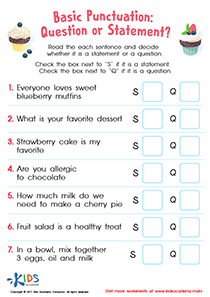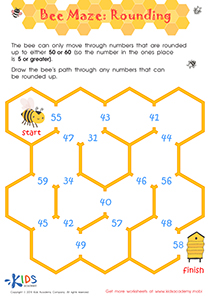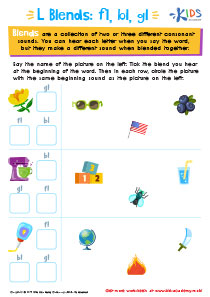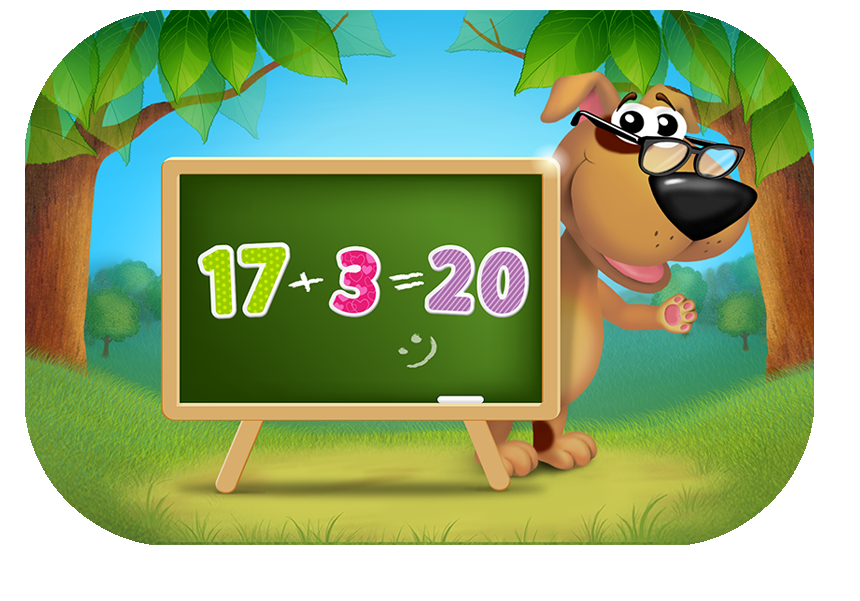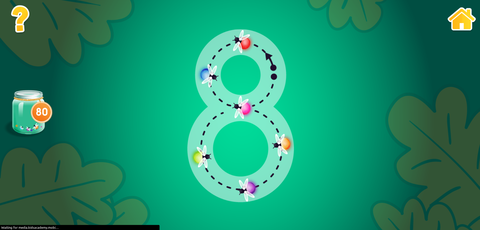Math Lessons | Counting and Cardinality up to 20 for Ages 4-5
38 results
Discover the joy of numbers with our vibrant lessons on Counting and Cardinality up to 20, expertly crafted for children ages 4-5. Through a delightful blend of interactive worksheets, engaging educational videos, and stimulating assessment quizzes, young learners will embark on a fun-filled journey of numerical exploration. Each lesson is designed to captivate their imagination and enhance their counting skills, ensuring a solid foundation in early math concepts. Perfect for preschoolers eager to explore the world of numbers, our Counting and Cardinality program promises an enriching educational experience, paving the way for future mathematical success.
In the vibrant world of early childhood education, the journey into mathematics begins with foundational concepts such as Counting and Cardinality up to 20, especially designed for children ages 4-5. This crucial phase in a child's educational development paves the way for understanding numbers, their relationships, and how they can be used in the world around them. The lessons focused on Counting and Cardinality up to 20 for Ages 4-5 play a pivotal role in helping kids grasp these essential mathematical principles, setting a strong foundation for their future studies.
Engaging children in this age group requires a thoughtful blend of interactive worksheets, captivating educational videos, and assessment quizzes. These methods are not just tools but gateways that open young minds to the wonders of numbers. Interactive worksheets, for instance, provide a hands-on experience. Children learn best when they can touch, feel, and manipulate objects. By counting items, drawing numbers, and connecting dots, kids quickly grasp the concept of numbers and their order, making the abstract notion of mathematics tangible and accessible.
Moreover, educational videos serve as a powerful medium to reinforce these concepts. Through stories, songs, and animations, children are introduced to counting and cardinality in a way that resonates with their imaginative minds. These videos often feature relatable characters and scenarios that help kids understand the practical applications of counting and cardinality, such as dividing snacks among friends or counting steps in a dance routine. By weaving mathematical concepts into everyday contexts, these videos make learning both educational and entertaining.
Assessment quizzes, while may sound daunting, are tailored to be age-appropriate and encouraging. These quizzes are crucial in gauging a child's understanding and retention of counting and cardinality concepts. They offer immediate feedback, which is instrumental in reinforcing learning as well as identifying areas that may require additional focus. These quizzes also serve as confidence boosters; when children see their progress, it fosters a positive attitude toward learning and challenges.
The curriculum designed around Counting and Cardinality up to 20 for Ages 4-5 is more than just about learning to count. It's about building a mathematical mindset. Understanding cardinality—the idea that the last number in a count represents the quantity of items in a set—helps children make sense of number sizes and quantities, a skill that is fundamental in all areas of mathematics. This grounding in numbers aids in the development of more complex mathematical thinking and problem-solving skills as children grow older.
In conclusion, the lessons on Counting and Cardinality up to 20 for Ages 4-5 are a cornerstone of early childhood education. Through interactive worksheets, educational videos, and assessment quizzes, children not only learn to count but also begin to understand the significance and applications of numbers in their everyday lives. This comprehensive approach ensures that children are not just memorizing numbers but are developing a deep, intuitive sense of what numbers mean—a foundational skill that will benefit them throughout their academic journey and beyond.

